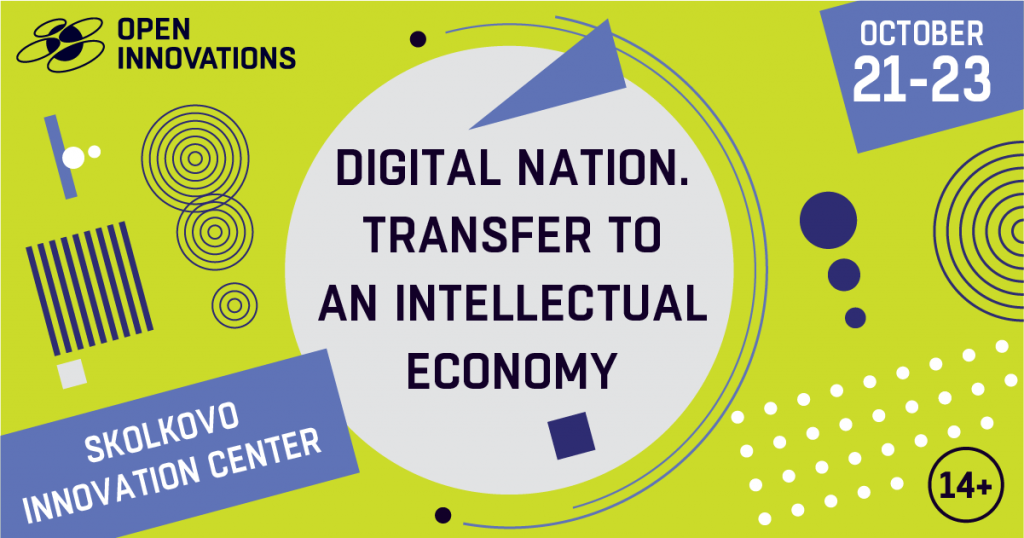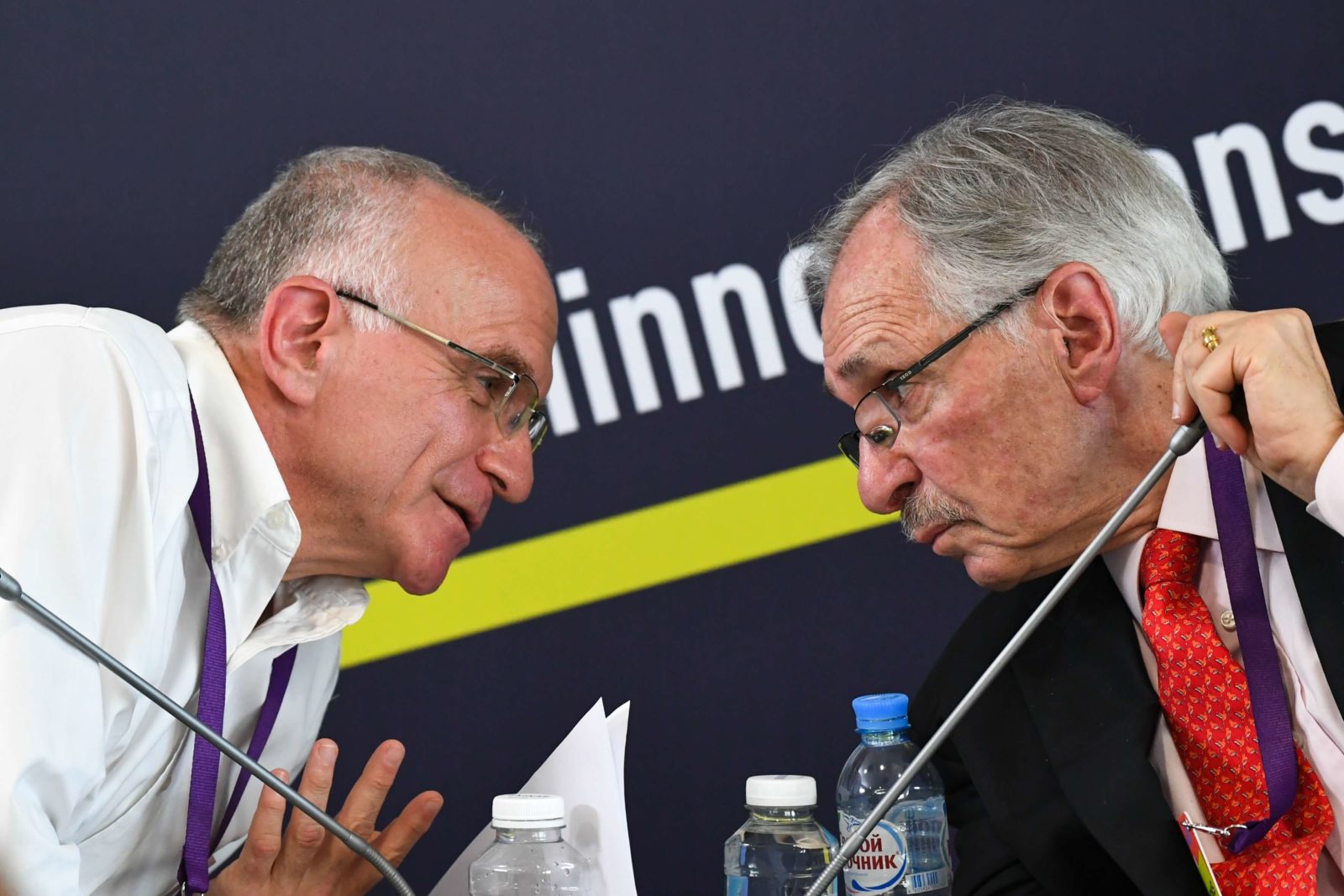The 8th International Forum Open Innovations rolls out with the new theme – ‘Digital Nation. Leap Forward to Intelligent Economy’. The Forum brings together world-level business experts, scientists, and entrepreneurs for the exciting 3 days of high-tech solutions, promising startups, and meetings with specialists who are creating the future today. The conference kicks off on October 21-23, 2019 in Moscow.
The organizers reveal that this year’s program will be built around three elements: Digital Human, Intelligent Economy, and Futuretech, with the man as the pillar of the digital society positioned in the center of the system.
‘Man is the main ‘customer’ and the main ‘beneficiary’ of technological development and digital transformation. Digitalization transforms leaders’ approaches to business management and speeds up every process; the introduction of digital platforms creates new formats for cooperation. We will discuss which technologies are going to have the highest impact on the economy”, says CEO of Skolkovo Forum Ekaterina Inozemtseva.
Her team is bringing such speakers as Chairman of the Executive Board of RUSNANO Management Company Anatoly Chubais, Vice President and Deputy General Counsel of Microsoft Steve Crown, Head of Design, Strategy & Innovation of Philips Sean Carney, and many others on Skolkovo Technopark stage.
The program of the 2019 edition will cover the following topics:
- Technology optimists vs technology skeptics
- Generation Z’s consumption and behavior profile
- Digital platforms for Nation 5.0
Generation Z: How to involve children in the digital economy?
Generation Z, according to the theory of William Strauss and Neil Howe, consists of children born in 2000-2002. Sometimes they are also called “the digital children.” Internet, gadgets, mobile technologies – for Gen Z this is everyday reality, and not the result of a technical breakthrough, as it was for “the millennials” born in 1982-1995.
Young people of Generation Z are already becoming participants in economic processes today. In three to four years they will be employees of corporations, more active consumers of goods and services, and subsequently employers. And their differences from previous generations can seriously affect the structure of the market and community changing the customary situation beyond recognition.
“For representatives of Generation Z, the line between work and life will become completely blurred. These young people prefer short-term project activities, mostly creative, although they do not deny the value of working with corporations. It is also important that the whole life of people of generation Z takes place in a digital environment – they might know more about artificial intelligence than current and potential employers. All this makes them different from us, and we need to understand how to interact with them,” says Ekaterina Cherkes-zade, Director of the British Higher School of Design, Head of Universal University.
The values of “digital children”, the peculiarities of their training and employment at the Open Innovations Forum will be covered in the panel discussion “People First. Generation Z consumption and behavior profile”. The moderator will be a Finn, Pekka Viljakainen, a member of the Board of Directors of the Skolkovo Foundation.
Knowledge as a resource: Digital transformation in education
Powerful challenges related to digital transformation significantly update the face of the entire educational industry. Demand is growing from adult people, video courses and online platforms become more popular, classic universities, yielding in competition with their modern rivals, actively transform educational processes.
The volume of global investment in educational projects in 2019 exceeded $16 billion, and continues to grow. The trend for knowledge and the development of new competencies is natural for a digital society, where information is the key value.
“Through a combination of the traditions of a classical academic school and the ambitions of young technology teams, Russia has every chance to become a leader in the growing edtech market. Our task is to create the necessary platform for such leadership by combining the efforts of the state with the energy of business, science and the educational environment,” says Alexander Povalko, General Director, Chairman of the Management Board of RVC JSC.
Representatives of the leading Russian and foreign educational organizations will meet at “The Open Innovations” Forum to discuss whether new educational platforms will be able to compete with traditional universities, analyze the application of VR, AR and MR technologies in the learning process, and consider fund strategies that focus on investment in education.
Supported by RVC, The Open Innovations Forum will host a panel discussion on “Education on-demand tools. Human capital technologies and platforms” and “High Season for Edtech. Investments in education”.
If such topics as knowledge-based economy, future edtech, and digital platforms fascinate you, head over to Open Innovations Forum on October 21-23. The Open Innovations Forum, held annually in Moscow since 2012, is Russia’s largest congress and exhibition event showcasing the leading trends and key achievements in business, innovation, and tech.
In 2018 the Forum gathered over 20,000 visitors from 90 countries, among them representatives of science and education, investors, technological entrepreneurs, representatives of information infrastructure and corporations, and a wide circle of public authorities’ representatives and journalists.






